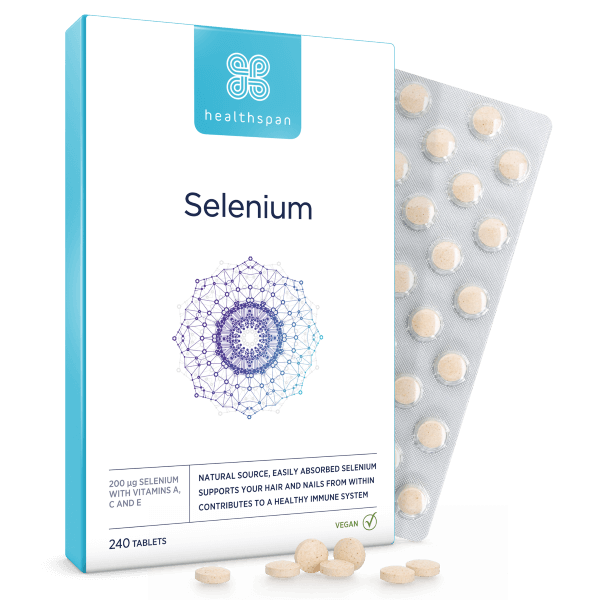Nutrition is key for anyone training for hypertrophy, wanting to increase their lean muscle mass, or ultimately gain strength. But your hard work in the gym is only 40% of the story. Our muscles, tendons, and joints, require time to repair and recover, to grow and develop.
Building muscle is not about bulking up on highly calorific foods in large quantities: you'll just find yourself gaining fat tissue. Rather, it is about applying the right training stimulus, and providing your body with adequate nutrients to support protein synthesis and tissue repair. It's about optimal hormonal balance, recovery, and effective management of cortisol (the stress hormone), enhanced insulin sensitivity, and glucose uptake, as well as peak immune function and gut health.
Muscle building is a highly complex process, but eating to encourage it needn't be. The best approach to increasing muscle mass is to consume a wide variety of high-protein foods, since they contain the essential amino acids that are used as the building blocks for muscle and tissue repair.
In addition to protein, we require vitamins, fibre, and minerals to aid protein synthesis, convert food into energy, and repair cellular damage. Although having a variety of different vitamins and nutrients are key, there is one combination that you should consider if you're building muscle: ACE and selenium. So here's a quick guide to why these vitamins can be so beneficial, and the role they can play in your muscle building journey.
What's the point of selenium?
Selenium aids the body in processing and using proteins. It is incorporated into proteins to make selenoproteins, which are important antioxidant enzymes. The antioxidant properties of selenoproteins help prevent cellular damage from free radicals. And why do free radicals matter? Free radicals are natural byproducts of oxygen metabolism that may contribute to the development of chronic diseases.
Found in Brazil nuts, eggs, dairy products, plant based food, and salmon, selenium is something you can easily incorporate into your diet, or supplement with a quality product. It enhances androgen production, which is related to testosterone levels in both men and women: a key hormone needed for muscle building. What's more it also enables enzymes needed for glutathione to function, the immune regulator, which plays a role in protecting the body from free radical oxidative stress.
Combined, selenium therefore effectively encourages the body to produce hormones, which promote muscle growth and also reduce the amount of stress on your body. Selenium supplementation is particularly relevant for those of you on a ketogenic diet: generally high fat, with adequate protein, and low carbohydrate. Ketogenic diets, despite having fat burning benefits, will frequently result in vitamin and mineral deficiencies. But how does this affect muscle building? A selenium deficiency has been found to have a negative impact on thyroid function, which regulates vital body functions, one of which is muscle strength and growth.
The ACE vitamins
Vitamin A
So what does vitamin A do? It promotes normal growth and development of the bones and teeth, the development of the reproductive system, skin, and mucosal lining protection, and eye sight integrity. For those trying to build muscle, its key function is how it plays a role in the repair and growth of body tissues: the very muscles you are trying to grow. It can be found in foods such as offal, dairy products, sweet potato, carrots, broccoli, and paprika, but is often advised to be supplemented, particularly for those who intensely exercise.
Why? Intense physical activity, disrupts your absorption of vitamin A, exacerbating what could already be a deficiency in anyone with a low-fat intake. A low-fat diet prevents bile from entering the intestine, which is necessary to help retain and restore vitamin A levels, and so it passes through the body and is therefore lost through waste. Vitamin A intake should not be compromised if one is serious about muscle building and overall health.
Vitamin C
Vitamin C is not readily stored in your body and therefore needs to be replenished on a daily basis through foods such as citrus fruits, red peppers, broccoli, sweet potato, and blueberries. Whenever you get a sniffle or a sneeze, it's the vitamin we all turn to "cure our cold". But it does so much more than that, and can play a vital role in the muscle building process. Vitamin C is an antioxidant required in tissue growth and repair.
One of its key benefits, for anyone looking to pile on some muscle, is its effect on how your body releases cortisone, the hormone secreted whenever you are under stress. Cortisone ultimately decreases your testosterone levels and throws your body into a catabolic state, which means your body begins using your muscle for fuel: the exact opposite of what you're ultimately trying to achieve.
What's more this powerful antioxidant also boosts the production of collagen - connective tissue that helps repair tendons and blood vessels. Of course, this is key to your muscle building journey: effectively repairing any damage done by heavy lifting. It also helps flush the muscles of lactic acid, the cause of your dreaded DOMs, and what may stop you from completing your set. With all this is mind, don't take any chances when it comes to vitamin C: it's a great idea to supplement with vitamin C if you're not getting the recommended 40mg a day.
Vitamin E
Like selenium, vitamin E protects cells from damaging free radicals, and is a powerful antioxidant. Vitamin E improves circulation, repairs tissue, and promotes normal clotting and healing. It reduces scarring from some wounds, reduces blood pressure, and helps with leg cramps.
But why is it so important if you're wanting to build muscle? Lifting goes hand in hand with muscle building, and of course muscle strength is integral to this. A poor diet resulting in low vitamin E is often linked to muscle weakness, and delayed repair of cell damage: holding you back from lifting heavier, and repairing of plasma membranes of cells - which can be damaged through weight training. Part of how we build muscle is a more natural tearing and repair process, but if that repair doesn't occur, it results in muscle cell death. Over a longer period of time, this can develop into muscle-wasting disease.
To ensure you consume enough vitamin E in your diet, sprinkle sunflower seeds on your oats in the morning, have an avocado with lunch, and ensure you have broccoli with your main meal. Or find a quality vitamin E supplement to use alongside a nutritionally dense diet.
Maintaining a balance
Targeted training intensity and muscle stimulation comes easily to those who are motivated and determined to build muscle mass, but allowing for recovery is often another issue.
It is of primary importance to ensure that you have a good nutrition plan ahead of training. After all, missing the occasional training session can be productive for that much-needed recovery, but neglecting nutrition means a breakdown in the healing process. It's essential to fill any nutritional gaps with regular quality supplementation to reap maximum results from training and to encourage that increase in muscle size and strength. Even calculated, tailored and specialist diets can fall short, especially if training demands override a nutritional balance.
It can be very difficult to cover all bases with whole food nutrition alone. Rather than being an optional extra to boost your muscle building success, supplement use should be used alongside a quality diet to boost your body's' muscle building capacity and performance.
Ensure that you pay close attention to your daily nutrition requirements as well as your training, and you will soon find yourself building, and more importantly maintaining, the muscle mass you have worked so hard for.

Selenium
Supports thyroid, immunity, hair, skin and nails
- 200mcg natural selenium (363% NRV) per tablet
- Added vitamins A, C and E
- Health support for just over 6p a day







